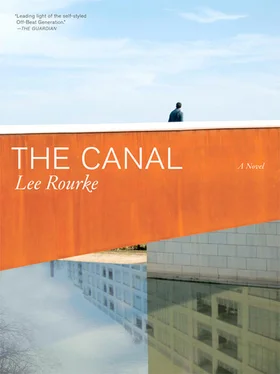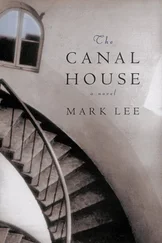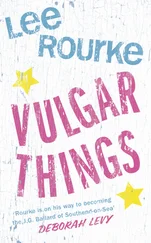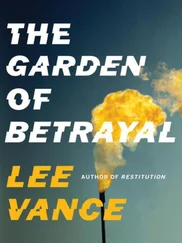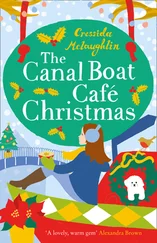It was the gaggle of Canada geese that had been paddling themselves up along the canal towards the bridge that made all the noise: a sonorous cacophony that seemed to overtake everything, each of the geese acting, as it were, as if it was each of them that had been hit by the stumpy arrow. The coots and the moorhens stayed far away, hardly recognising that something was fundamentally wrong. Least surprising of all were the assembled occupants of the whitewashed office block: not one solitary face peered from the line of looming windows, everyone inside completely unaware and utterly engrossed with whatever it was on their snazzy flat-screen monitors: emailing, checking spreadsheets, figures, project plans or on their phones talking about more figures, spreadsheets, emails, project plans, et cetera.
I didn’t notice her rush past me; I was too transfixed by the violent spectacle happening before me. But then she entered the picture, standing on the bank, teetering over, reaching out to the flailing swan.
Before she jumped into the canal, she turned to cast a fleeting look at me. I cannot erase that look from my mind. But how many times have I said that? How many times have I commented on how she looked at me? All I know is that she looked at me and if I knew then what I know now I would have stopped her. I would have dragged her away from the canal, from everything. I would have stopped her.
She moved clumsily, awkwardly, like some weight had glued her to the spot, pulling her towards the canal bed, rendering any fluidity of movement an impossibility. She waded, messily, over to the dead swan. Reaching it, she made a final lunge, stretching with both arms out to grasp it, falling into the water, before resurfacing to hold it, the whole swan in its entirety, breast to breast. Then, struggling as before, she waded back with the swan, labouring to keep it out, above the water, back to where I was standing. She carried the swan in complete silence, steadfastly refusing to allow its limp neck and head to drag and loll through the water, straining and overly arching her back to lift it those crucial few millimetres above the choppy surface.
I shouted something to her. I cannot recall what it was, but it must have attracted her attention as she momentarily looked up at me again, just the once, to gauge her distance, as she made her way, slowly, back towards me on the towpath. The rain continued to bounce off her, sheets of it cutting into the murky water all about, trickling down the fattened breast of the swan. She proceeded with a blank stare, as if she was up to something ordinary, something she did every other day. It wasn’t a cold look, as such, or without any emotion, yet it left me wondering if she was acting on sheer impulse rather than an intrinsic need to save the swan — but, as I’ve always thought, aren’t all potentially life-saving decisions made on a whim, without caution, and therefore wholly mechanised?
My brother saved me once. Not from death exactly, but from a violent situation. I was in my early teens and had become fearful of almost everything. I was walking home from a friend’s house in the area. The streets were busy and dark; it wasn’t that late so it must have been in winter. I was walking down the Essex Road, and as I passed The Green Man pub, I noticed that I was being followed by three other lads. They were a little older than me, but not much. Pretty soon they caught up with me, after I crossed New North Road, when I was passing the row of shops set back from the Essex Road. Whilst trying to quicken my pace they stopped me. One of them pulled out a lock knife and held it to my stomach while the others rifled through my pockets and bag. I had nothing of any monetary value, or interest for that matter, on my person, so they began to indiscriminately kick me, laughing and shouting at me to keep walking. They continued to kick me, mostly in the shins and calves, trying to trip me up. I hopped and skipped, jumping out of the way. Then something hard and extremely painful hit me across both shins, which caused me to fall to the floor in immediate agony. I had been hit with an old wooden rounders bat. I was screaming in agony. I am, to this day, convinced that they were about to beat me into a pulp if it wasn’t for the near miraculous appearance and intervention of my brother. He had been passing by on a Number 38 bus and had seen the attack. He had jumped off the back of the bus and dashed over the road to me and my three assailants, where he pulled me up from the ground and, without having to use any force or violence, made the attackers disperse, simply by naming the school they attended. On hearing this they walked away, swearing, grumbling, shouting at us both, leaving my brother to carry me home.
Years later, when my brother was drunk at a family Christmas party at an uncle’s house, he — in the first and only time he had ever spoken about the attack — told me that it was a total fluke: he had guessed the school and had blurted out its name to them. Figuring that they were from the local area, and if he guessed their school correctly it might deter them. On the other hand, said my brother, in between gulps of the warm Guinness he was drinking, if he hadn’t of guessed the correct name of their school, he’d probably have been attacked along with me, too. When he said this he smiled at me in a way that made me feel that I was his brother.
She waded over to me in the rain, the swan hanging limply from her arms. Her clothes were sopping wet through and I could see the outline of her skeletal frame. Her hair was stuck to her face, water dripping down her cheeks. I inched closer to the edge. Again I turned to look up at the bridge, to see if they were there, to see if the Pack Crew were there, but they had gone. But I knew all too well who had committed this abomination. I knew instinctively that it was them. I knew it was the redheaded one who pulled the fatal trigger. I knew it was him. I turned back to her and held out my hand, but she ignored my gesture, slipping a little, but still moving towards me. Then she began to struggle, losing her footing a number of times and nearly collapsing into the murky water. I moved over again and offered her my hand one more time. Now the bridge was directly above us once more and we were finally shielded from the rain. She looked at my outstretched arm. I followed the trajectory of my outstretched arm towards her and the dead swan. Beyond her and the dead swan, to my right, was the lower floor of the whitewashed office block and the company esplanade. At first I thought I saw somebody there, staring at us both, but it was a large seagull resting on a hand rail, looking into the canal for discarded food. It opened its wings at full span, stretching them as one would an arm or a leg, one after the other, before rising up into the air, up above the canal and over us and the rusting iron bridge, cutting through the sheets of rain as if they were nonexistent. When it had disappeared from my line of vision I returned to my outstretched arm, holding it out for her. She waded closer and then struggled to free her right arm from holding on to the dead swan, letting it rest on her stomach and right thigh, her left arm still wrapped tightly around it, whilst she struggled to maintain her balance on the slippery bed of the canal. Slowly, she began to reach for my outstretched hand. I inched even closer to the edge, as close as I possibly could before gravity could grip hold and pull me off balance, aware of how unsafe under foot the banks of the towpath had become since the rain had started to pour.
Our fingers touched, ever so slightly, but she must have lost her footing again and slipped, as her hand fell away from mine. She soon regained her balance, determined to lift the swan out of the canal to what she thought was safety, all the while managing to keep the swan out of the water. She seemed unaware that it was dead. Eventually, she made one last lunge towards me: I gripped onto her cold hand, near squeezing out what little warmth was left in it, and guided her up towards me and the towpath beyond the bank’s edge.
Читать дальше
